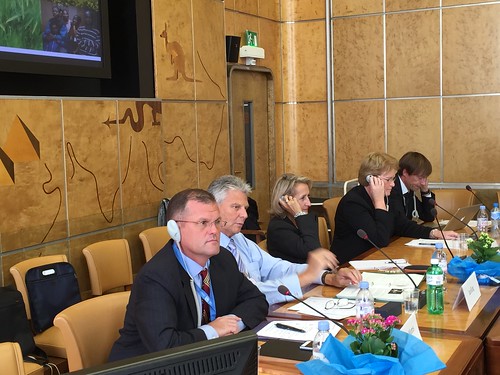
USDA’s Agricultural Marketing Service (AMS) has the vital mission of administering programs that help market American agricultural products competitively in the global marketplace. One of the ways AMS meets this mission is through the development of our own globally recognized meat standards, developed by the program I oversee, the AMS Livestock, Poultry and Seed Program. However, separately, AMS works to achieve our mission through our participation and leadership in international standards setting organizations such as the UNECE.
For many years, I have represented the U.S. as the Vice-Chairperson of the Economic Commission for Europe (UNECE) Specialized Section on Standardization of Meat. UNECE is one of the many sections of the United Nations (UN), and facilitates international trade by developing agricultural quality standards.
As Vice-Chairperson of this UNECE Specialized Section, I attend and help lead the meetings held at the United Nations complex in Geneva, Switzerland, and have led the development of several of the UNECE standards, including the UNECE’s beef, retail cut, poultry and processed poultry standards. These standards encourage high-quality production, improve profitability and protect consumer interests across the globe – ensuring everyone across the supply chain speaks the same trade language. Further, by the United States playing a leadership role in their development, we ensure that international standards never impeded the international trade of U.S.-produced products.
The UNECE standards are used internationally by governments, producers, traders, importers, exporters and international organizations. Prominent examples include the use of the standards by developing countries that don’t have the resources to develop and maintain their own national standards. Much of the work conducted by the UNECE provides developing markets with the resources they need to remain connected to the global marketplace.
Currently, there are 16 standards for meat, ranging from Alpaca meat to turkey, and seven standards for egg products – all listed on the UNECE website. In addition, I also attend meetings the Section holds in various countries, where we engage in the technical side of a standard, such as testing the standard in real-world conditions to ensure they work as intended and reflect the wide variety of products available. Every session is translated into several different languages on-the-spot, which eases communications between all the countries in attendance.
Being an integral part of this international effort ensures that the American meat industry is represented and remains competitive in markets all over the world.
